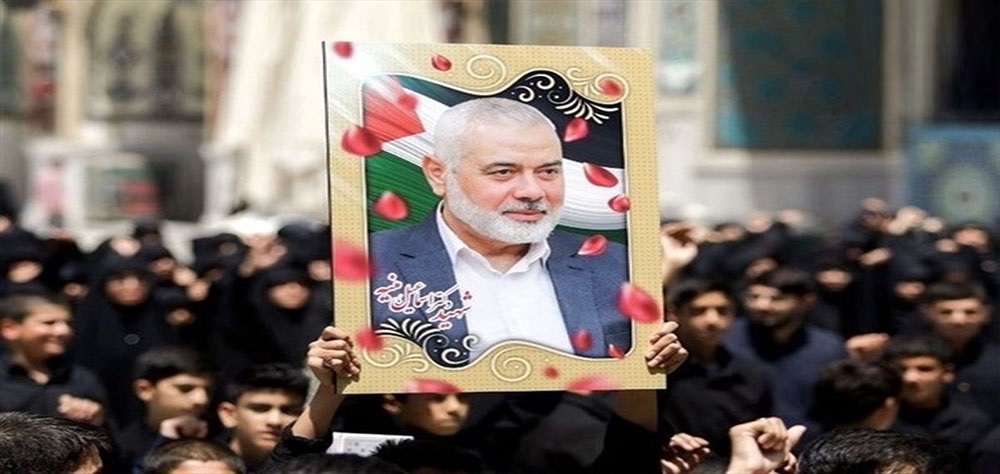Khaled Haroub, an Arab political analyst, in a piece published by the Middle East Eye believes that Hamas will not be obliterated by Haniyeh assassination because the movement's collective leadership has expanded at home and abroad and its performance is such it does not disappear with the elimination of its leaders. In fact, Hamas relies on collective thought and decision-making room and not just the individual leaders. When Hamas faces the assassination of its leaders, younger leaders step in, reorganize and expand the group's support base.
In the meantime, to understand the situation of Hamas after Haniyeh's assassination, it might not be bad to have a look at the conditions of the rise of this resistance group in the Gaza Strip.
How did Hamas emerge?
The driving force behind emergence of Hamas and other Palestinian resistance groups is one thing: Israeli barbarism and continued occupation of Palestinian territories
The Israeli regime at one time fought against the Palestine Liberation Organization (PLO) and Fatah and largely neutralized both without them ending the occupation. In fact, the neutralization of Fatah and PLO gave birth to the formation of Hamas and Islamic Jihad as resistance groups, and this is a constant and proven formula that military occupation catalyzes rise of resistance in any region, and Palestinian resistance groups such as Hamas are the result of the neutralization of struggle of Fatah and PLO against the Israeli occupation.
When Haniyeh became the head of the elected Palestinian government in 2006, he refused to leave his simple house in Al-Shati refugee camp to move to an official residence and instead sought to be close to the pulse of the nation, refugees and the poor and the main body of the Palestinian community in the Gaza Strip. This is the key point for understanding Haniyeh's personality and political character.
Haniyeh, who became active as a political mainstream in Hamas in the 1990s, participated in the parliamentary elections at the same time, along with several other Hamas members. This approach of Haniyeh run counter to the Hamas official boycott of participation in the official political structures of Palestine, which had started since the signing of the Oslo Accords with Israeli regime. At that time, Haniyeh abandoned this political boycott and engaged Hamas into official political competitions in Palestine.
At that time, Haniyeh said about participating in the parliamentary elections that it is a positive "response to the demand of a significant number of our people" who are looking for an honest alternative. Even a few years later, Haniyeh won the 2006 elections of the Palestinian Legislative Assembly and solidified political position. Haniyeh's rise to power within Hamas and his popularity among the Palestinian people were linked to his wise approach. He spoke in the language of ordinary people and was a skilled religious preacher and military mobiliser.
This popularity prevailed for Haniyeh. He was a memorizer of the holy Quran, and polls before and after October 7 operation showed that Haniyeh could beat Palestinian Authority (PA) President Mahmoud Abbas and hold the power in Gaza and the West Bank simultaneously in an election.
Heading Hamas leadership, Haniyeh was respectful even for many of his Palestinian rivals. He had turned into an influential diplomatic figure for Hamas and the movement picked him in 2017 head of its Political Bureau, transferring him out of Gaza. His moving from Gaza and living abroad, mainly in Qatar and Turkey, was a decision Hamas thought would bring more benefits than losses for Palestine. While some criticized Haniyeh for moving out of Gaza, he managed to build a wide network of relationships with government and movement leaders from across the region and beyond. Arab and Muslim leaders from Morocco to Malaysia welcomed Hamas during Haniyeh's activities outside Gaza, and he was warmly welcomed by the sultan, the government and the people of this country during his recent trip to Oman. In fact, Haniyeh's moving out of Gaza granted Hamas extensive global connections and the sphere of influence of Hamas as a Palestinian group broadened into other Islamic countries. Various meetings with the leaders of Islamic countries and some political heads and governments all showed that Haniyeh, who was active in the Hamas office in Qatar and Turkey during the past seven years, was able to turn Hamas into an active Palestinian movement at world level, pursuing a successful diplomatic path.
Hamas after Haniyeh
After Haniyeh, Hamas would need a charismatic leader and at the end of the road, it will find it, as it did after assassination of Sheikh Ahmad Yassin and other leaders.
Even the assassination of Haniyeh will cause numerous and more radical splinter groups to rise up against Israel alongside Hamas, which will put Israeli regime into a tight spot.
It seems that the prisoner swap between Hamas and Tel Aviv
will be pushed to the sidelines for sometime after Haniyeh's
assassination, and the post-Haniyeh Hamas will more seek alternative
strategies to continue its war of attrition against the occupiers in
Gaza— a path unfavorable to the Israelis and will burn huge energy from
the Israeli forces in the besieged coastal enclave.
/129

